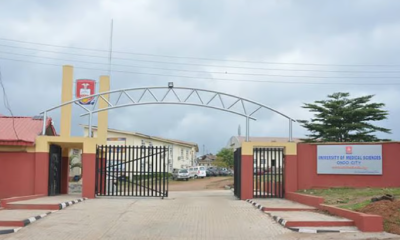Oil marketers in Nigeria are subtly holding the federal government responsible for the lingering petrol scarcity in the country. Major Oil Marketers Association of Nigeria (MOMAN) attributed the fuel scarcity to government’s deregulation policy.
The Major Oil Marketers Association of Nigeria (MOMAN), therefore, told the federal government to consider a full deregulation of the petroleum downstream sector in phases. Chairman of the Major Oil Marketers Association of Nigeria (MOMAN), Oluwole Adeosun, at a web training for energy journalists Monday in Lagos, said that the development was necessary to cushion the effects of the impact of the sharp rise in fuel prices on the hardworking citizens of Nigeria.
He said his members eschew cutting corners in the ongoing fuel scarcity in the country.
Adeosun also said that MOMAN would continue to work with other key stakeholders, to ensure that it ramp up supplies to retail sites and return to normalcy as soon as possible.
He added, “We envisage a rise in demand during the yuletide season and we are prepared to work round the clock to keep our stations running.”
Adeosun also said there was need for the country to begin the process of price deregulation to reduce the inefficient subsidy
“If the country wishes to implement a subsidy, it must be in areas targeted to help those it should help. Such areas are agriculture and transportation, to reduce food price inflation and generate more jobs for Nigerians.
“In tandem, we must find a way to liberalise supply. We must bring transparency and competition into supply to ensure steady and more efficient supply at optimum prices.
“Imported products must compete with locally refined products to find a meeting point between the need for local refining and competitively low but cost recovered prices for Nigerians for sustainability.
“The dialogue with the Nigerian people needs to begin to identify, negotiate and agree these areas and begin implementation to save the downstream industry.
“The industry has been in degradation free fall due to a lack of investment to maintain, renew and grow assets and facilities such as refineries, pipelines, depots, trucks and modern filling stations,” he said.
According to him, the lack of investments contributes in no small measure to fuel distribution inefficiencies and high costs.
AdvertisementHe asserted that neither the new refineries nor the refurbished refineries will survive with the refining margins at current pump prices.
The chairman said the exploration, production, refining of crude oil and the distribution of refined products are international businesses with ebbs and flows.
According to him, they have specific models, guidelines, rules and norms designed to protect and sustain consumers of this type of energy and populations impacted by its supply chain.
He advised that the government and the industry in Nigeria must demonstrably apply these accepted health, safety, environmental protection and quality norms to be seen to care for its local populations.
Executive Secretary of MOMAN, Clement Isong, apologised to Nigerians over the lingering fuel crisis, adding that his members are desirous of cushion its debilitating effects on Nigerians.
He said that there is abundant fuel offshore, but lamented that Nigerians could not have access to same on account of logistic issues.
According to him, there is need for massive investment in infrastructure to put the country’s downstream sector in good shape.


 Politics1 week ago
Politics1 week ago
 Business1 week ago
Business1 week ago
 Featured1 week ago
Featured1 week ago
 Education1 week ago
Education1 week ago
 Latest1 week ago
Latest1 week ago
 Features1 week ago
Features1 week ago
 Aviation5 days ago
Aviation5 days ago
 Featured5 days ago
Featured5 days ago



